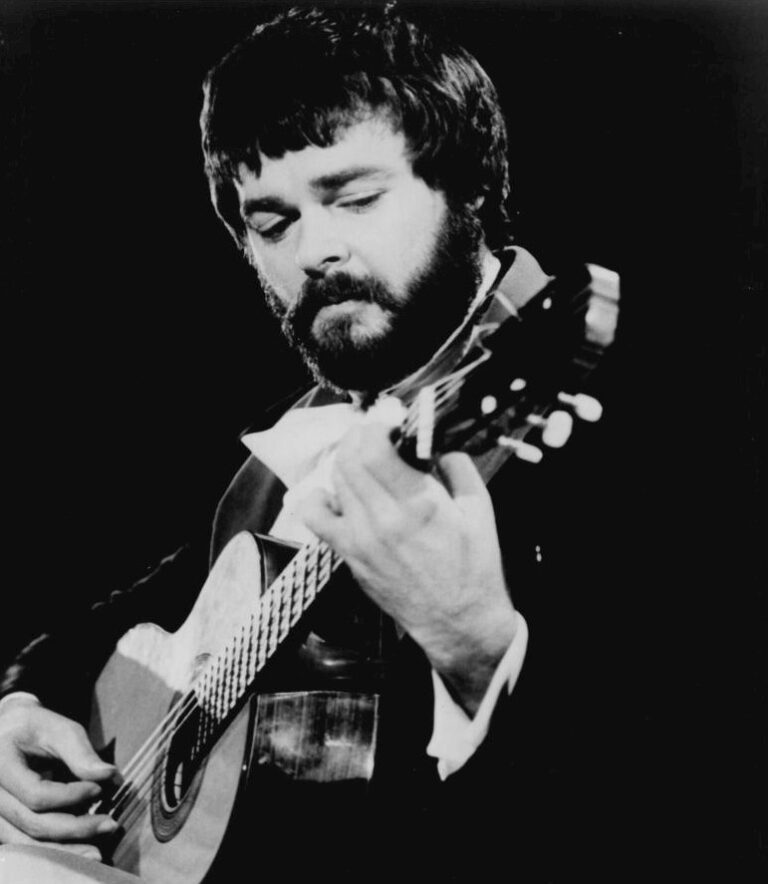Weekend Intermission is our regular feature where we look at an artist or band not from the Nordic countries, just to mix things up a bit.
For the final post of 2023 we return, under the Weekend Intermission non-Nordic banner to the ‘Greatest Songs’ theme, of which we have surprisingly only posted three previously.
I mentioned this song a few weeks ago in the article on greatest TV cop series theme tunes. Two of the three were from the Nordic countries but the third was the immortal ‘Hill Street Blues’ theme by Mike Post. I mentioned that Post won his first Grammy Award at the age of 23 for Best Instrumental Arrangement on Mason Williams‘ ‘Classical Gas’ from 1968 when Williams was in his late 20s.
‘Classical Gas’, which reached #2 on the Billboard Hot 100 chart in the US and higher still in other charts in the US and abroad, is a good example of tracks that still get a lot of airplay on some radio stations, and they do so for a reason. They are perennially good. They set benchmarks. They are what aspiring musicians strive to learn to play. The song has been covered innumerable times and most notably by Tony Emmanuel, who recorded a super-fast flamenco style version of it. Even Lisa Simpson learnt it.
And it has featured in a Frasier episode and a fairly recent American Dad one too, while dozens of US television stations have used it as the opening theme for their news programmes. However, contrary to popular folklore Eric Clapton has neither covered it nor did he compose it as he is believed by some to have done as a version of it appeared in the film The Story of US, for which Clapton was musical director and played most of the guitar music. The version in the film is actually Mason Williams’ own solo guitar re-recording for a later album.
The fascinating thing about Williams is that he wasn’t first and foremost a musician. Rather, he was a stand-up comedian and comedy scriptwriter, working on The Smothers Brothers Comedy Hour, a US comedy and variety television show that aired in the late 1960s and which contained often controversial content aimed at a youthful audience including cutting political satire and humour and featuring big rock music acts of the moment such as The Who and musician-cum-political activist Pete Seeger.
It was the sort of thing that you might find on BBC3 now. Despite the show’s ratings success that controversial content got it pulled from the schedules in 1969.
There is much about Williams that is unusual to say the least.
According to Williams himself he wrote the song during the summer break after the first season of Smothers Brothers, while he was working on a couple of arts projects; a life-sized poster of a Greyhound Bus (which appears in the video here) and the world’s largest sunflower. After a wild fortnight of non-stop partying followed by 48 hours of sleep he woke up, picked up his guitar and decided to compose something for no other reason than “to play at parties when they passed the guitar around.” So one of the most iconic classical pop songs of all time started life as a musical version of pass-the-parcel.
He originally called it ‘Classical Gasoline’, the idea being that it would be the ‘fuel’ for a classical guitar repertoire, or alternatively that he “wanted to “throw gasoline on the dying fire of classical guitar”. Williams performed it during several different Smothers Brothers episodes with instrumental backing from The Wrecking Crew, a collective of Los Angeles session musicians who anonymously backed many popular songs. They were finally recognised for their contribution to popular music when they were inducted into the ‘Rock and Roll’ and ‘Musicians’ Halls of Fame respectively in 2000 and 2007.
(One of the Wrecking Crew incidentally was drummer Hal Blaine, who played on the very first in this series of Greatest Ever Songs in March of last year, namely Simon and Garfunkel’s ‘Bridge over troubled water’.)
On the day Williams debuted the song on the show, while he played guitar there were cardboard cut-outs of him playing the other instruments. The song was originally released on the album ‘The Mason Williams Phonograph Record’, in 1968. This album is also notable for having two tracks – ‘Life Song’ and ‘Dylan Thomas’ – that were 27 seconds and 29 seconds long respectively, and another that was titled ‘The Prince’s Panties.’
On another occasion he finger-synced his way through the song on a specially made plexi glass guitar that he filled with water and a couple of goldfish.
As I said, he was better known as a comedian.
‘Classical Gas’ was subsequently re-recorded and re-released on several occasions, the best- known version probably being on the 1987 album collaboration with the band Mannheim Steamroller, who sound like they should have been billed alongside Heimlich Manoeuvre.
On another occasion it was re-recorded as a solo guitar piece on the 1970 album ‘Handmade’. That version was subsequently re-released by Sony in 2003 after it was featured in the film Cheaper by the Dozen, which starred a Smothers Brothers’ protégé, Steve Martin, whom Williams is credited with finding and nurturing.
In 1969, the song won three Grammy Awards, for Best Instrumental Composition, Best Contemporary Pop Performance (Instrumental) and Best Instrumental Arrangement. The latter award was to the aforementioned producer Mike Post, who was another session musician at the time, and one of the first to move into production.
Post also wrote a middle section for ‘Classical Gas’ after realising it needed a bridge and – conversely – having told Williams after he’d first heard it that it was “the most over-arranged piece of s**t he’d ever encountered.” Williams threw him out and Post apologised the next day. The rest is history.
Technically ‘Classical Gas’ is difficult to play for several reasons, one of them being that it varies between four different time signatures in its three minutes – 3/4; 4/4; 5/4 and 6/4. Dave Edmunds, who released his own version in 2015, described it as being “all over the place.” Also it has to be played with a thumb pick and fingers; no mean skill.
It isn’t clear if it was Williams or The Wrecking Crew who decided to introduce Wagnerian tuben horns into it – they are like a cross between a French horn and a trumpet and are rarely heard outside of specialised orchestral pieces. Listen for what sounds like a loud repeating fart.
After ‘Classical Gas’ made the Top Ten, Williams engaged an experimental film-maker, Dan McLaughlin, to synchronise a student video montage that he had made of classical art works and edit it to his song, using the technique now known as kinestasis. The result was shown on the Smothers Brothers show and might have been responsible for pushing the song higher up the charts.
Millions have watched various live performances of ‘Classical Gas’ online and when I originally wrote this piece it was possible to access the original video that went with the song, and which hadn’t been seen since 1968 prior to that remake. It was an exercise in subliminal messaging and a work of art in its own right. It was also one of the first ever music videos. Unfortunately it can no longer be viewed publicly, like so many videos these days.
So instead here is a video from the same era, digitally remastered by New Zealand’s Classic Hits Studio.
For absolute aficionados of this piece, the original stereo version is on this link, in fabulous quality:
https://www.youtube.com/watch?list=SRmason%20williams%20classical%20gas&v=mREi_Bb85Sk
Wallow in it.
Williams has recorded more than a dozen albums. Now aged 85 and living in Oregon, he no longer performs live and has dedicated his later years to environmentalism, collecting over 400 songs about rivers into an anthology, Of Time and Rivers Flowing, encompassing classical, folk, minstrel, gospel, jazz, country, pop and rock. He has written for dozens of television personalities and for a short spell was head writer for Saturday Night Live.
And as a comedian first and foremost, apart from musician, poet and photographer the final comment has to be that, together with Nancy Ames, he wrote the awful ‘Cinderella Rockefella’, a 1968 #1 hit for Esther and Abi Ofarim. Fortunately he won’t be remembered for that abysmal effort, rather for what has been described as ‘a guitar piece like no other’, ‘an anthem for an era’ and ‘the most loved instrumental hit of all time.’
While Williams has written 250 songs in his celebrated career, none has risen to the level of ‘Classical Gas.’




